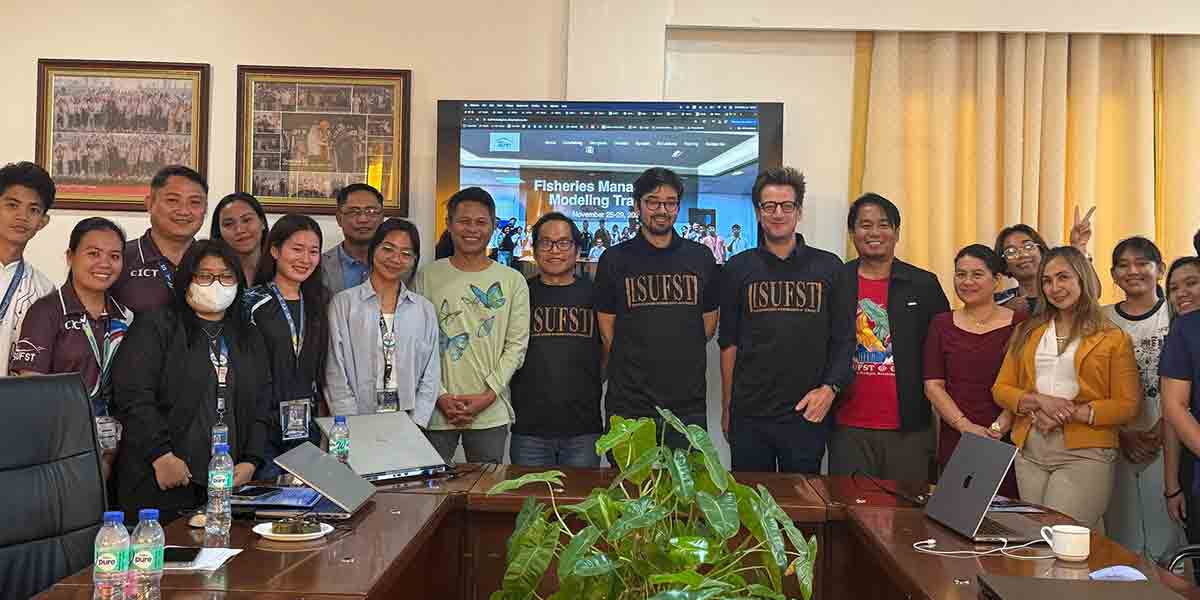 By Artchil B. Fernandez
By Artchil B. Fernandez
Last Monday (February 3), the University of the Philippines (UP)-Diliman community averted a major showdown that would have rivaled the Diliman Commune in 1971. Incidentally, the aborted event would have coincided with that significant episode of the First Quarter Storm 49 years ago.
Prior to Monday, disquiet, uncertainty, and angst were sweeping the UP-Diliman community in connection to the selection of the new chancellor who replaces the out-going chancellor Michael Tan. The selection process for the next chancellor of the premier campus of the national university has agitated the community.
Two candidates were vying for the chancellorship – Prof. Ferdinand Manegdeg, Dean of the College of Engineering and Dr. Fidel Nemenzo, Vice President for Research and Development.
Nemenzo is a 1985 math graduate of UP-Diliman and earned his master’s and doctorate degrees in mathematics at Sophia University in Tokyo. He served as president of Southeast Asian Mathematical Society from 2010 to 2012, and the Mathematical Society of the Philippines from 2004 to 2010. Nemanzo currently chairs the math division of the Governing Board of the National Research Council of the Philippines and has held research and teaching posts in Singapore, Tokyo, Amsterdam, Munich, and Phnom Penh.
Manegdeg finished his mechanical engineering degree at UP-Diliman in 1979 and got his master’s degree from the University of Leeds in the United Kingdom. He is presently the vice-chairperson of the Engineering and Industrial Research Division of the National Research Council of the Philippines. Among the positions he held were human resources and development director II of UP Diliman and UP System, and program development associate of the UP chancellor and UP president.
As the selection process progresses it became polarized along ideological divide. Both candidates were labeled and categorized on the left-right dichotomy. Nemenzo, the son of former UP President Francisco Nemenzo Jr., was identified with the left. Manegdeg on the other hand, an Ilocano, was branded as a Marcos loyalist and a rightist.
Ugly issues surfaced as the voting neared (the 11-member UP Board of Regents of BOR elects the chancellor). Nemenzo was red-tagged while Manegdeg was burdened with the issues of being not a licensed engineer and having no doctorate degree.
Towards the end of the selection process, it was Nemenzo who got the broadest support of the UP-Diliman community. Student councils endorsed him as well as various academic units, including the College of Engineering. None of the academic units or student councils openly supported Manegdeg but he had one ace up his sleeve. Manegdeg is backed by CHED boss Popoy de Vera.
De Vera’s backing only deepened suspicion on Manegdeg in the UP-Diliman community. The chancellorship selection has become a proxy war between UP-Diliman and the outside forces attempting to meddle in the internal affairs of the institution and interfere in its life. De Vera was seen as the hatchet man of these external forces.
Despite the wide support for Nemenzo from the Diliman constituency, the community is uneasy about the outcome of the BOR vote. Last year, de Vera succeeded in getting the BOR disregard the process of the selection of some deans, including the controversial appointment of Manegdeg. Given the balance of forces in the BOR and the ideological color in the selection of the new chancellor, it appears de Vera again will have his way. Many in the UP-Diliman community are resigned to this scenario.
But when the voting came, Nemenzo got 9 nines votes while Manegdeg got zero, with de Vera and Spocky Farolan (both Manegdeg’s Vanguard brothers) abstaining. Why did de Vera fail to replicate his previous victory in the appointments of the deans?
The popular narrative is the BOR bowed to the will of a united and determined UP-Diliman community. This is evidence of the success of the militant struggle.
But there is an alternative explanation of Nemenzo’s overwhelming vote and it has nothing to do with the militancy of the UP-Diliman community. The surprising vote in the BOR can be explained by the relational aspect of the dynamics of the whole process and the depth of the social networks involved.
Nemenzo is a brod of Manny Villar in the Pan Xenia fraternity. The fraternity worked hard for Nemenzo’s election with Villar silently moving behind the scene. It is this relational factor that many including de Vera failed to account for. Perhaps they do not know or have deliberately ignored or disregarded this vital link. While on the surface, the tussle for UP-Diliman chancellorship is an ideological tug-of-war, at the deeper level is a battle of relations, networks, and connections. This is a classic case where relations trump ideology. Villar is committed to secure the post for his fraternity brother.
If Nemenzo and Villar are not fraternity brothers, the outcome of the vote in the BOR would have been different. Malacañang has three “at-large” appointees in the BOR excluding de Vera. It is easy for Malacañang to sway the votes of the two members of Congress in the BOR. This is how de Vera imposed his will on UP-Diliman in the selection of the deans. De Vera failed this time because there is a higher power that intervened. Obviously, Villar asked Du30 to give (balato) to him the chancellorship of UP-Diliman. Between de Vera and Villar, it is crystal clear who has the sway on Malacañang.
The outcome of the contest for UP-Diliman chancellorship once again demonstrates the clout of Manny Villar as Du30’s favorite oligarch and political ally. It is quite ironic that it took an oligarch to save UP-Diliman from a Marcos loyalist/rightist and retained the Left’s hegemony on the campus.
People may question this narrative and insist on the popular one. But remember, there is no love lost between Du30 and UP-Diliman. Du30 is just delighted to irritate the community with a chancellor they so dislike. But relations are stronger than ideology.






















